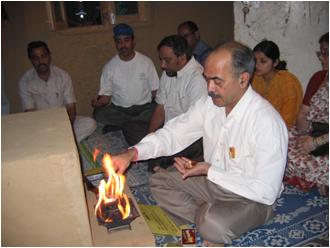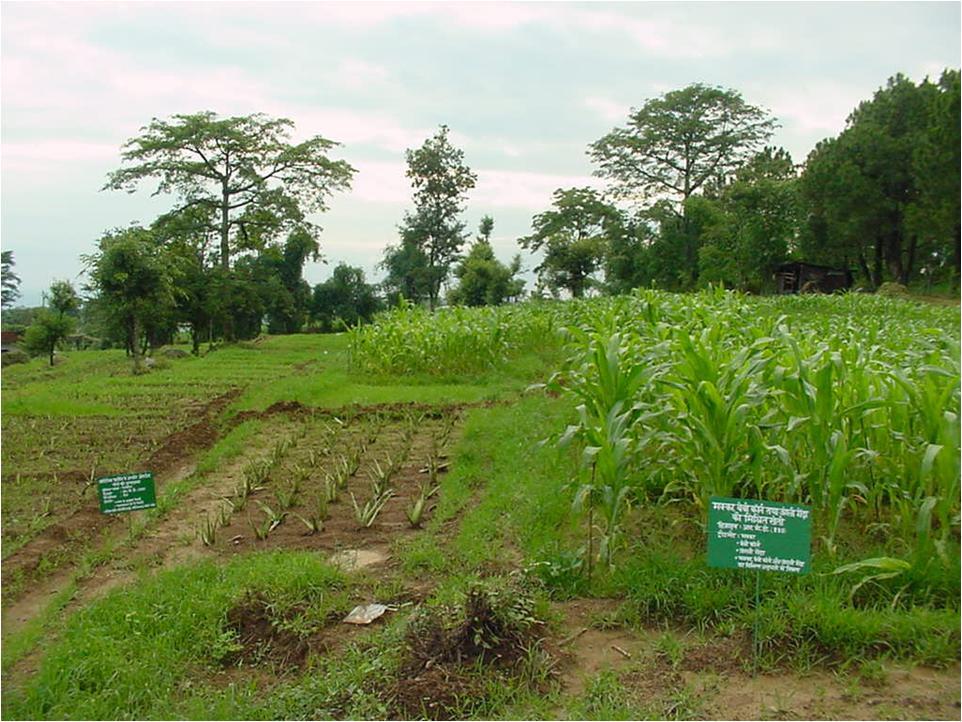 |
Experiments with Agnihotra and Homa Therapy were conducted at CSK HP Agricultural University, Palampur, Himachal Pradesh, India in 2006.
PreambleThe urge for organic way of farming is gaining momentum all over the world due to burgeoning signs of unsustainability in agriculture, degradation of natural resources and heavy debit charge on ecology and environment adversely affecting the welfare of human society. |
| The problem is more intense in stressed eco-regions especially in hilly areas that are regarded as the harbinger of resource regeneration and climatic stability. In many cases, over 90 per cent of inorganic produce of vegetables, foodgrains, fruits, milk, etc., produced under conventional farming system contain poisonous agro-chemicals residues harmful and unsuitable for consumption. Therefore, it is absolutely essential to devise methods and practices of farming, respectful of ecological principles, so as to give sound and pertinent recommendations to the policy makers and farmers in order to ensure food security and low-cost sustainable agriculture in 21st-century. | |
| Realizing the importance and potential of organic farming in mountain regions of the country, Indian Council of Agricultural Research (ICAR) has sanctioned this project to CSK HP Agricultural University, Palampur. The university has already got trained multi-disciplinary team of resource persons and established model organic farm. In lieu of this, the present project would enhance the R & D endeavors of the university in the area of organic farming. In this backdrop, various field experiments have been designed to study the effect of different organic inputs (including bio-manures/ biopesticides) on crop productivity, quality of produce and soil health. The experiment on effect of integrated organic management was designed to validate the response of bio-inputs on productivity, profitability and quality of crops as well as effect on soil health/fertility. |  |
Objectives of ExperimentThe specified objectives of this field experiment are:
|
Location of Field ExperimentThe experiment has been laid out during 2006-07 in the experimental fields on Model Organic farm (MOF), CSK HP Agricultural University, Palampur. The land selected for experimental site was barren and abandoned for cultivation for a long time and, thus was ideal for conducting trials on organic farming. The gross area for this experiment is about 1296 sq. metres. Indicator crops
|
 |
Gross plot size12 sq metres (4 X 3 m) Experimental DesignRandomised block design (RBD) Dates of planting
Spacing: 60 X 45 cm Spacing: 30 X10 cm |
|
Treatments Detailed ResultsStudy of Various Organic Treatments on Cymbopogon citratus (Lemon grass) ConclusionsTo sum up, it has been clearly demonstrated in this experiment that in lemon grass, wild marigold and aloe vera, addition of Agnihotra ash was significantly superior to other organic treatments. It significantly affected the growth and yield attributes of all the crops. |
|

